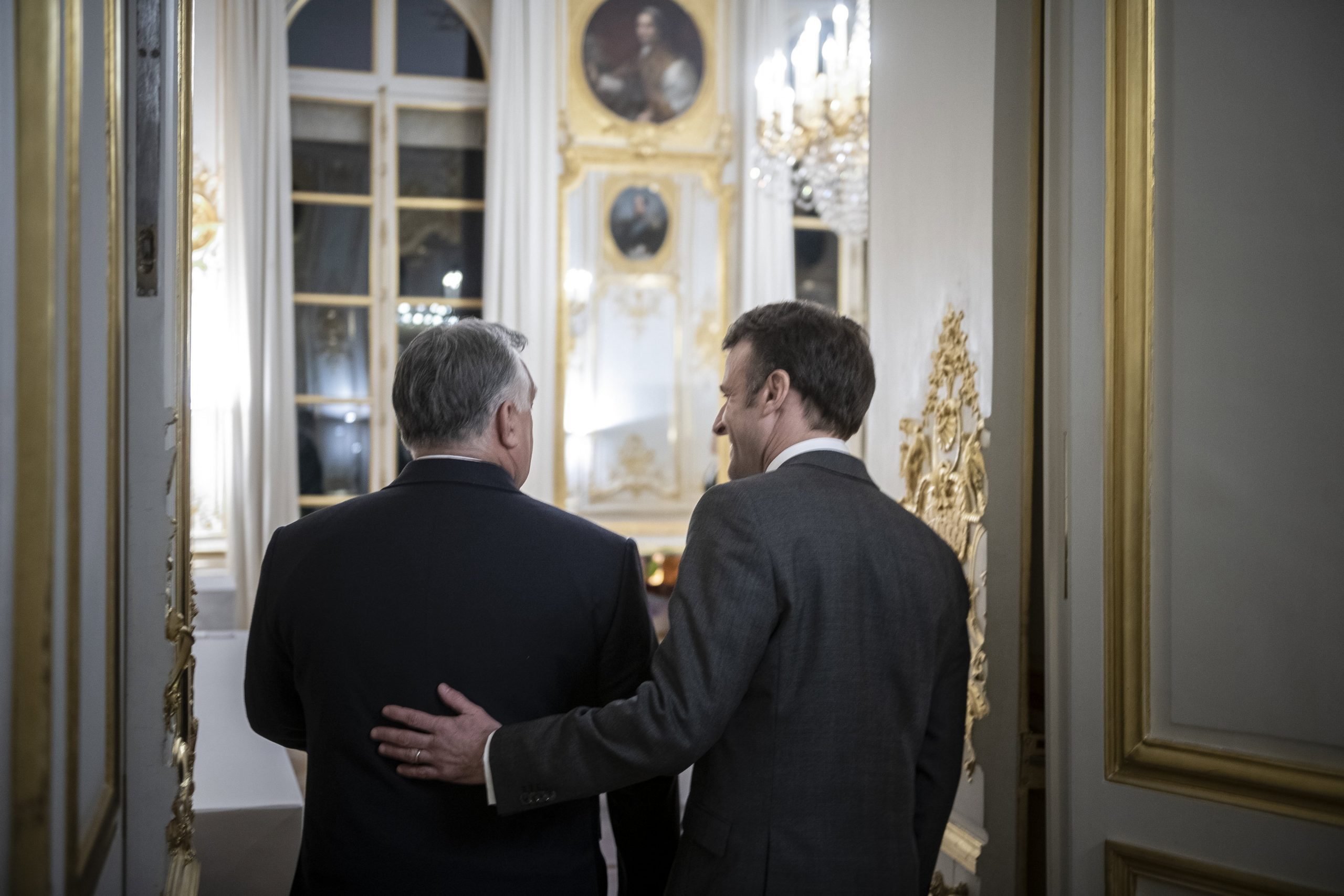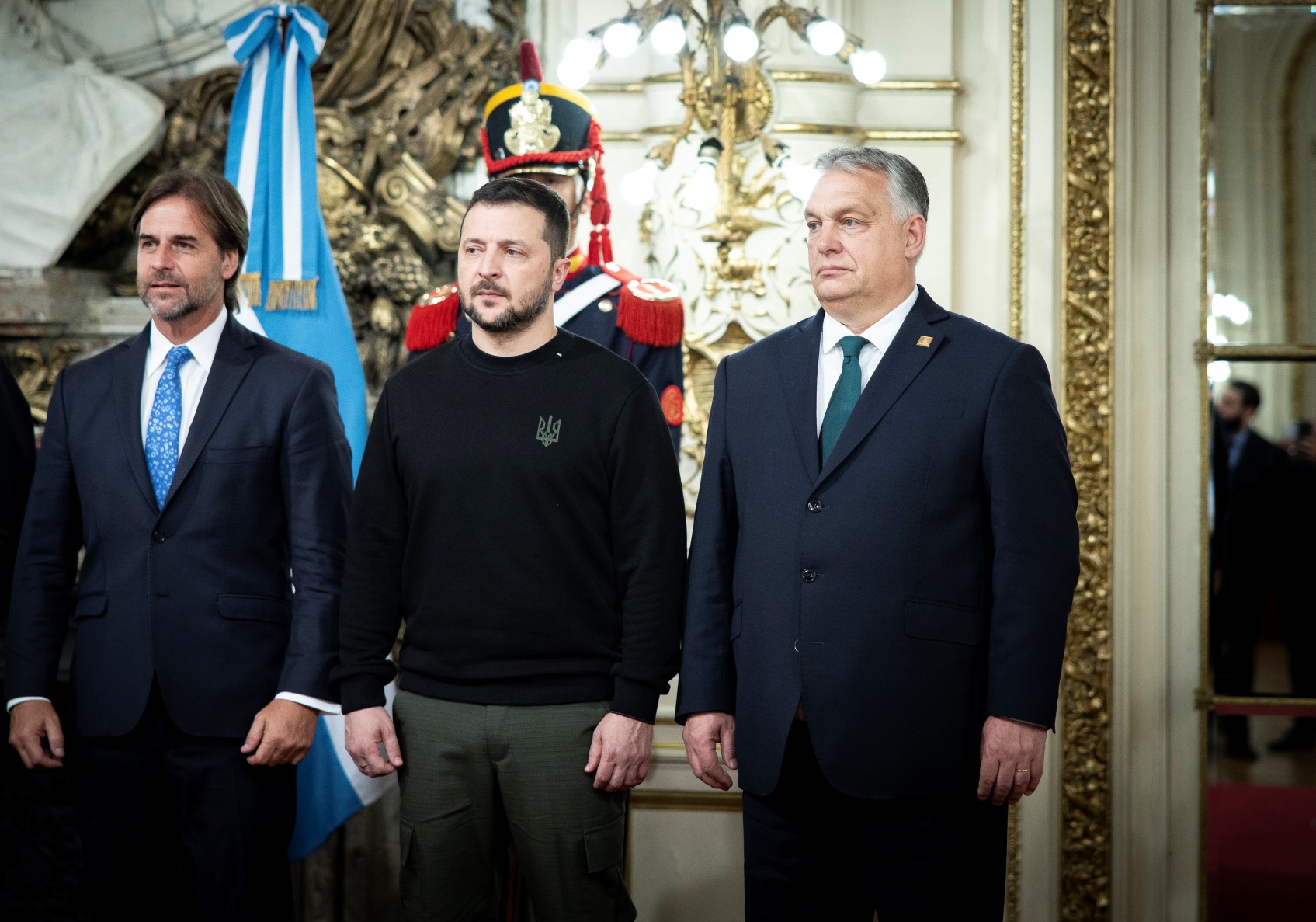
This was the Prime Minister's first interview with a French newspaper since 2015.Continue reading

It was with great expectations that I opened the British Guardian newspaper’s recent report on the Hungarian minority living in Ukraine, hoping that the left-wing newspaper might have just redeemed itself with an article depicting the plight of the Hungarian minority after years of sustained Hungarophobic propaganda. Alas, it was not to be.
In fact, Shaun Walker’s report has ventured out on a well-worn path of other liberal media outlets that have used the sizeable Hungarian minority in Central-Europe as a cannon-fodder in the war against Prime Minister Viktor Orbán and the democratically elected government in Budapest. The only difference is that doing so in present war-torn Ukraine violates even the usual, losely-adhered to unwritten rules of the left’s culture wars, putting a small, vulnerable community in the firing line. Literally so.
The writing quotes unnamed villagers who allegedly admire Viktor Orbán and Vladimir Putin in the same breath, for being “real men”, standing up against the LGBTQ lobby. Although this comparison alone could serve as an automatic emotional trigger for the average Guardian reader in
not only categorizing the Hungarian Prime Minister in the same batch as the Russian President, but also the Hungarian minority in Transcarpathia, Western Ukraine, as Russian-speaking separatist militants in Donbas, the above comparison between the two leaders is really a cringe-worthy cliché.
As countless reports and personal meetings with Ukrainian Hungarians testify, Putin is no hero in Hungarian-speaking homes in Ukraine, nor is one in Budapest, where the government had condemned the Russian invasion in unequivocal terms.

Statue of poet Sándor Petőfi in Berehovo. Photo: KMKSZ
The fact that according to the Guardian piece President Zelensky was described as “clown” by one of the villagers quoted is perhaps more plausible, but it is a half-truth in itself if we fail to point out that this is a sentiment found outside of Kyiv all across Ukraine. Prior to the Russian invasion of Ukraine President Zelensky was down to sub 10% popularity figures among Ukrainians, hence setting up a the above opinion in an air of split loyalties among Hungarians is misleading at best.
The Guardian report risks stoking Ukrainian nationalist sentiments though when it continues by saying that “in Kyiv, there are fears that the Hungarian community in the west risks becoming a smaller-scale mirror of the Russian-speaking community in the east, with a hostile foreign power using concerns about their rights as an excuse to undermine Ukrainian sovereignty”. Such sinister and malicious comparisons not only play into the hands of western culture warriors who view Viktor Orbán as the enemy of progress, but more worryingly to forces who have questioned the rights of the Hungarian community’s existence long before the war.
In a troubled region of Europe where memories of ethnic and religious genocide from WWII are still all too fresh, and where ethnic cleansing is still an ongoing reality, stoking sentiments with such activist reporting is outright dangerous.
The Hungarian community in Transcarpathia has no separatists tendencies, has not armed itself, and it is generally living in peace with the Ukrainian majority as far as it is allowed to. In fact, Transcarpathia has become a precious island of peace, civility and some prosperity in the sea of unimaginable carnage that is Ukraine today. The Hungarian government is not sending them weapons, ammunition, nor inflammatory political rhetoric, but books, food, warm clothing, financial support for their everyday life, something that Ukrainians, Ruthenians or even Russians living in Transcarpathia have also benefited from greatly.
Asking Hungarian officials in Ukraine about whether they own a Hungarians passport while understanding that an affirmative answer to this question could bring serious repercussions for these community leaders also beggars belief. But coating their refusal to answer in a cloak of separatism and suspect loyalties is an outright provocation. Double citizenship, multiple passports are a matter of course in civilized, democratic countries, a privilege that some 1.3 British citizens enjoy without anyone daring to question their loyalties or accusing them of being Trojan horses of foreign dark powers. One can only wander about what motivated the Guardian to bring this up in relation to Hungarians in Ukraine.
That throughout the past decade The Guardian has given platform to almost anyone who was willing to volunteer negatives against conservative Hungary is troubling in its own right, but
stoking hatred in a war-torn country against a minority community, whose rights have been severely violated in recent years, is unforgivable.
Such fearmongering reporting could well fan the flames of Ukrainian nationalism and can result in a further curtailment of the rights of the Hungarian minority, or even physical attacks, precedents to which are all too numerous in the country.
The national identity and loyalties of the Hungarians in Transcarpathia is an exceptionally complex phenomenon that is weighed down with countless layers of history. Yet Hungarians’ feeling of national belonging is especially complex a topic for a British journalist whose newspaper has been instrumental for years in dismantling English, British identity, trying to replace it with a long-bankrupt utopia of multicultural Britain. Ordinary citizens of Ukraine, be it Ukrainians or Hungarians, will not necessarily understand the dangers of speaking to certain western activist journalists, but they would certainly be best advised only to share their views with media outlets that they know as having a long track-record of serving their community.
Featured image: MTI/Miniszterelnöki Sajtóiroda/Fischer Zoltán